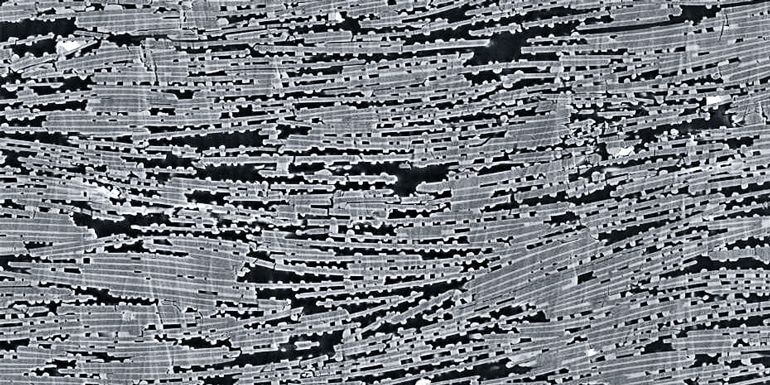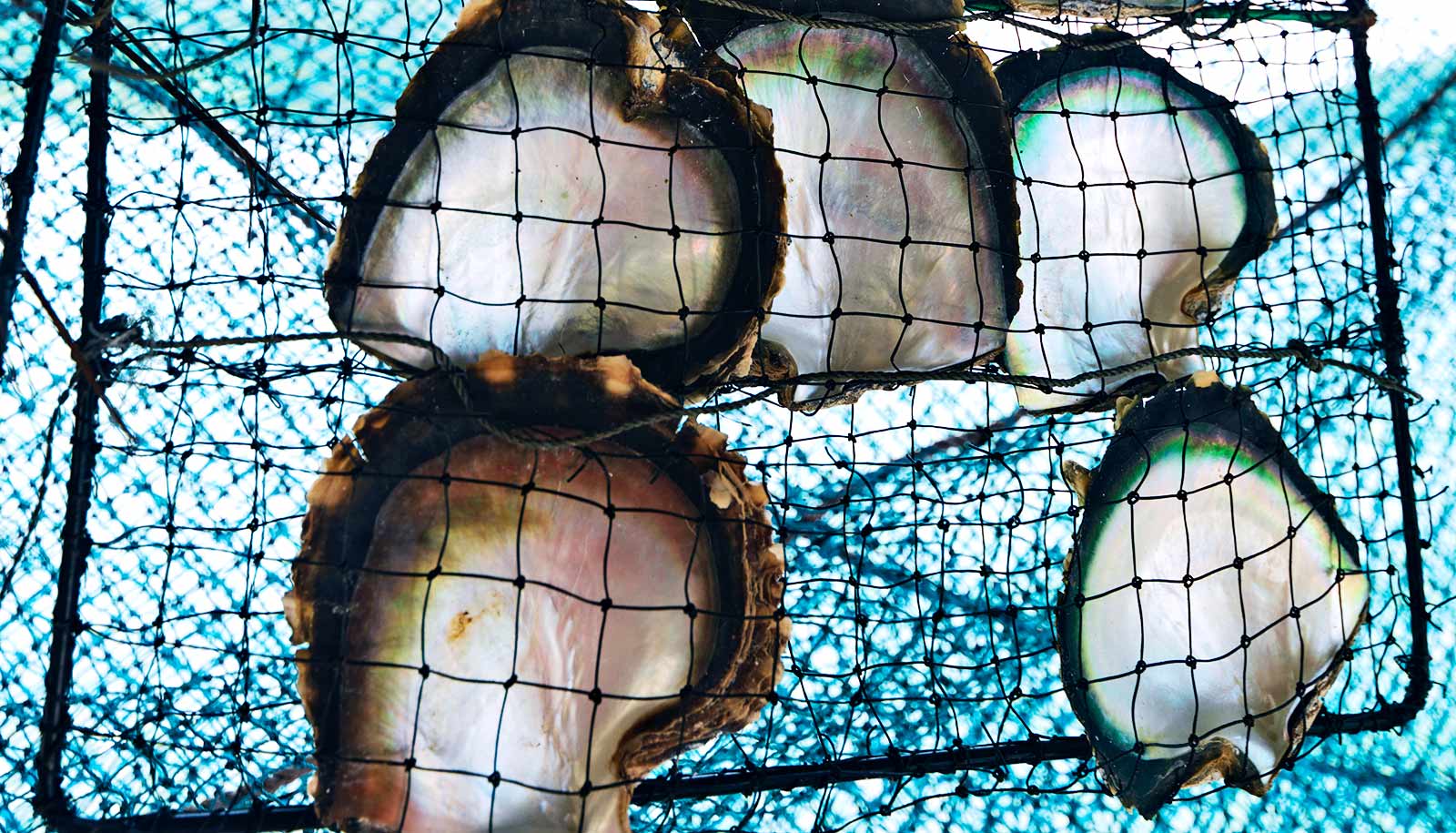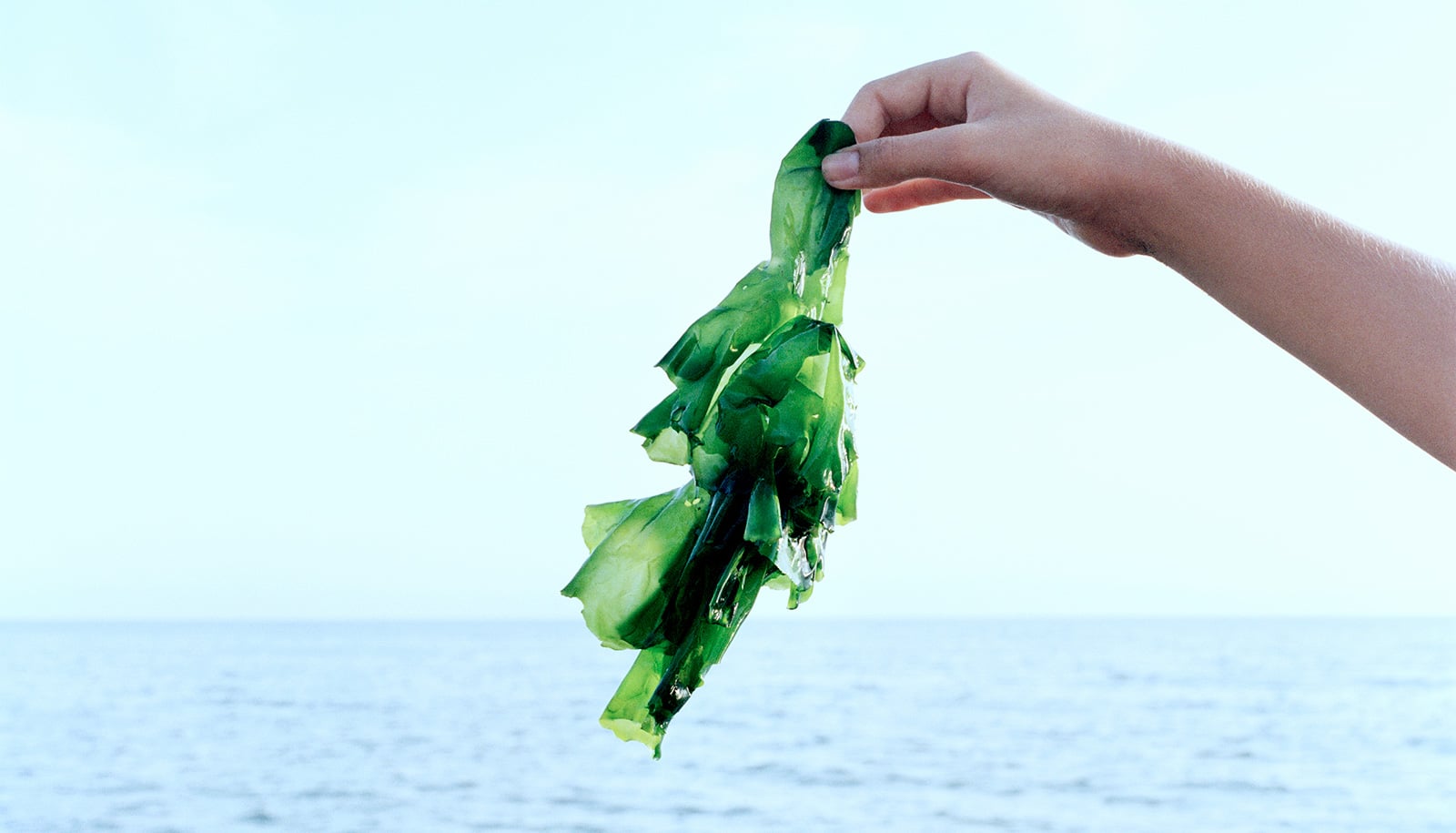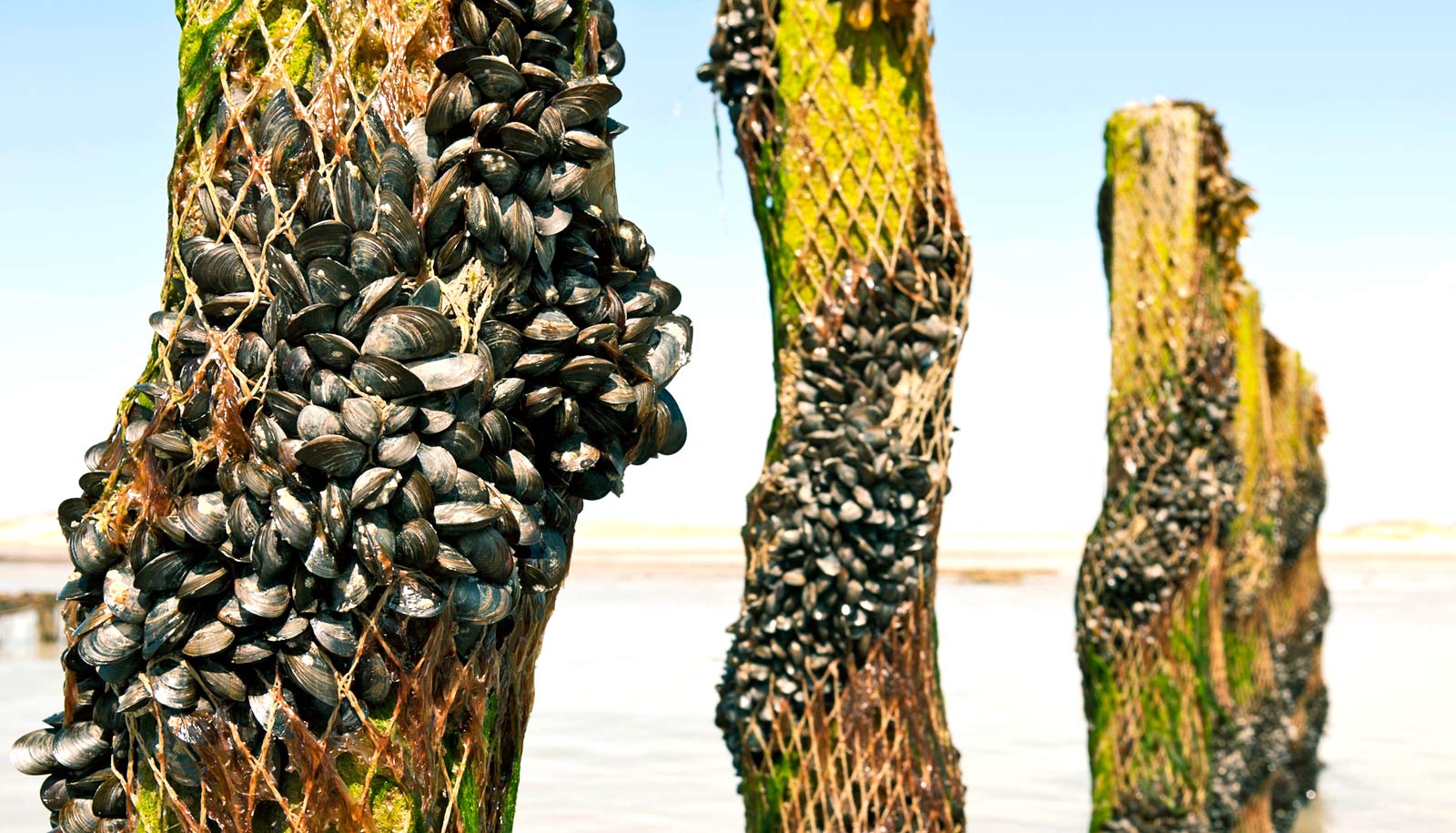Researchers have developed an imitation material comparable to mother-of-pearl with adjustable physical properties.
Natural mother-of-pearl, such as mussels, is one of the hardest, most stable, and stiff natural materials. The structure of mother-of-pearl is exquisite under an electron microscope; it looks like a miniature brick wall, the joints of which are filled with mortar. The bricks are composed of tiny calcium carbonate plates stacked on top of each other and interconnected with mineral bridges, and filled with a mortar composed of an organic substance.
Researchers have been investigating and imitating this structure and now have a special process to produce mother-of-pearl-like materials.

They use commercially available aluminum oxide plates a few dozen micrometers in size and an epoxy resin that acts as a joint cement. In a rotating magnetic field, the researchers align the magnetized plates dissolved in aqueous solution as desired in one direction, and under high pressure and temperatures of around 1,000 degrees Celsius (1,832 degrees Fahrenheit) they solidify the material with the addition of a resin. This results in a composite material with similar microstructure to natural mother-of-pearl.
In order to make the artificial mother-of-pearl even more stable and harder, the team used plates coated with titanium oxide. Titanium oxide begins to melt at around 800 degrees, which is a lower melting point than aluminum oxide. Titanium oxide droplets form on the surface of the platelets and turn into bridges, thus strengthening the entire structure.
“These bridges also influence significantly the strength of the material,” says Kunal Masania, coauthor of the paper outlining the material in the journal PNAS.
The density of these titanium bridges can be precisely adjusted by pressure and temperature, to produce artificial mother-of-pearl with the desired physical properties, including stiffness, strength, and fracture toughness.
With the help of a model and experiments, the researchers calculated which pressure and temperature conditions promote the formation of the respective properties that are comparable in stiffness to carbon-fiber composites. With this, the team have established a new world record in combining stiffness, strength, and toughness in this type of bio-inspired material.
With the newly developed technology, scientists can produce mother-of-pearl-like materials that have tailor-made properties for the respective application for possible applications in construction, aircraft, and space exploration.
Source: ETH Zurich



